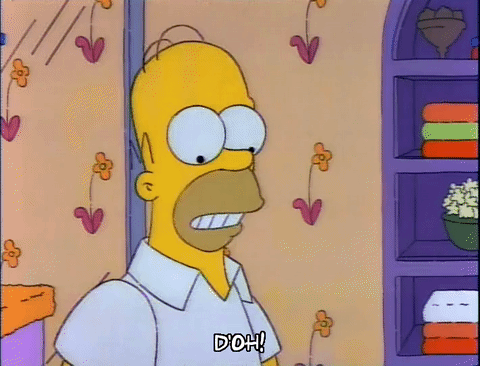I'm working on my 5th novel. It's a creative outlet that has filled many days and nights with excitement and purpose. I'm so glad that I was hard-headed enough to push my way through that first 100,000-word count fiction novel; it changed my mind about me. About what I'm capable of. It was an unlikely outlet for me. I had such difficulty writing and reading when I was young! I Failed almost every grade and generally thought of myself as illiterate in my teens.
I thought today I'd share a little of my own battle with reading and writing with this thing called a disability (I don't think that is true at all!) hanging over my head. How I overcome the difficulties and some suggestions for those who also struggle with, specifically dyslexia, or just in having the confidence to write that novel your dreaming of. Believe me, if I can do it, you can do it.
Enjoy! Follow
Upvote and @ezravan if it helps!

How To Write A Novel From A Dyslexic -
But First, A Short History
The first issue I faced as a youngster was that I was left-handed. I had teachers that tried to make me use my right hand to write. That might have set me back a little, but really, what set me back was Dyslexia.
After I failed the 4th grade and was held back for another round, my parents started checking into what might be going on with me. I definitely had problems reading and writing, but that was blamed on my lazy attitude, my inattention, and my inability to follow directions. I was usually called a daydreamer. Nowadays, I'm sure they would have medicated me. Back then though, believe it or not, they just hit you for most of this stuff. Literally 'hit' you with a stick. They called it spanking – sometimes in front of the classroom.
It didn't matter how many times they hit me though, I kept slipping behind the other kids. I fell so far back, eventually, I was in all remedial classes. I still failed in those classes, even though we did almost nothing all day. In those days, remedial classes were much different. This was in the 80s. They were a trailer outside of the school where they put kids to pasture.
Eventually, my parents got me some testing. They found that I was highly Dyslexic. I did jumble up words, write words backward and have troubles with reading comprehension. Though, The main manifestation of my dyslexia was the complete inability to translate information from one form to another form. For instance, I could read, even understand what was written on a chalkboard, but I could not get it on to the paper. And if you remember those early years, most of it was transferring one form of information, into another form.
Even today that same manifestation still shows its self with phone numbers. If someone shows me their phone number on a piece of paper or on their screen and wants me to type it into my phone, it's very difficult to do. Most of the time it takes so long that they grab the phone from my hands and type it in themselves. It's not much better if they are telling me their phone number audibly.

Things Changed When I Could Rearrange Myself
In my teens, I was reading at a 4th-grade level. My writing was completely illegible, even to me. I don't know if the problems were mainly due to dyslexia, or due to the fact that the schools basically just gave up on me in the 5th grade.
That all changed very quickly. I eventually dropped out after failing again. Strangely enough, I did very well on my GED and went straight into college classes. I was no Einstein back then, but I could hold my own.
So what changed?
When I applied for the GED at age 17, they gave me a book–a GED study book. There were no teachers, no time limits, no one to tell that I had to study this way or that, sit up straight, pay attention, memorize it this way or that ... no one told me anything. They just gave me a book. I took the book home and learned what I needed to learn.
What I needed was the ability to do things my way. When I was able to sit down and develop my own systems of learning, on my own private time, I did pretty damn well.
I still have issues with jumbling words, writing backward, but for the most part, I can get by. I've actually written 4 large novels, and I am now working on my 5th.
I still have techniques for writing that might seem strange to others. One that I used quite often is breaking up sentences into poetic lines.
If I'm writing an email to someone, it might look like this before I reassemble it:
Hi tom
I'm
so
glad oyu
and your mom
came to my show!
It was
a pleasure
ot meet her.
If you are not busy,
I hope
you make it to the
video shoot
on
wednesday.
Bring your sister.
I'm sure
she will
enjoy
the expreince
I left the misspellings and jumbled words on purpose. That's just me writing. I don't know why it helps me to break up the writing in this way but it does.
It helps me in two ways. For one, I easily see backward words i.e. the – 'ot' – (to) – jumped out at me when I looked up. Secondly, in my head, I'm writing in a rhythm, like there is a beat to it.
This is not the best example, I was thinking too much about it. But, some of my emails look more like poems. Sometimes I even start rhyming as I go. Then, when I'm done, I fix those few jumbled words, usually, my spell checker has caught everything, then I reassemble it into a paragraph. Like so:
Hi Tom,
I'm so glad you and your sister came to my show! It was a pleasure to meet her. If you are not busy, I hope you can make it to the video shoot on Wednesday. Bring your sister.
I'm sure she will enjoy the experience!
Of course, there are some great tools that have come along over the years. I use whatever works. Yet, even with recently advanced tools such as 'Grammarly,' I find I spend about the same amount of time as I always have fixing my writing.
I have some embarrassing misspelled and jumbled post now and again. Especially with similar words that spell check doesn't catch.
Advice For Writing Your Novel
A Guide For Bad Writers and Dyslexics
When you writing in bulk, like a novel requires, and you have an issue with writing, as I do; you find that the little cheats and techniques are just not sufficient for 5000-words-a-day kind'a writing. So my advice first:
1. Give up writing a grammatically correct, perfectly spelled, well fluent Great American Novel – just for the first draft.
In a novel, the story is king! Write a great story and do it however you have to do it! No one is there watching you. No teacher is going to spank you in front of the class. You will have a chance to edit each page, each paragraph, and each sentence separately... in private. sheww...
2. Do not write with spell check on!
This is related to the #1 advice above. If you have issues with grammar and spelling then the spell check barking at you every two words is going to wear you out.
The little green and red underlined words will continually peck at your confidence. You will want to fix it all, as you go, and that is a recipe for not finishing the novel. Finish the STORY.. then worry about the details later.
3. Don't show anyone your work
Keep the first, and maybe the second draft, to yourself! Even people that love us, actually, especially people that love us, can really put a ding in our hopes and ambitions. One little remark might prevent you from another draft. Don't let that happen. Take it as far as you can go – go a few steps further... then, use your own judgment as to when it is ready to show as a finished edit.
You may think you need someone to help you along the way. You don't. Your job is to write and structure a great story. You can do that. You'll need several drafts with full confidence in yourself to do it.
Your attempt at self-editing your novel has a bonus of helping you to understand the structure better. You'll find as you go into the micro-view of editing, that many of the continuity and plot issues will become more obvious to you.
4. Get a Text-to-Speech app to help you with subsequent drafts.
There are several Text-to-Speach apps available for free. If you're on a mac, all you have to do is enable it and assign a keystroke.
When your editing your book run each chapter through a Text-to-Speech App. Lay down on the sofa, listen to it with a pad of paper. When something sounds odd, make a mark on your notebook of the general context (So you'll know where to look).
When the chapter is done, you should have a page full of references to look at. See if you can't fix those parts up a little better.
Usually, odd beats in a reading are run on sentences, grammar issues, spelling, the wrong words, etc.. Fix it > Go to the next chapter. I would suggest doing this a few times through the entire novel.

5. Now, run the press!
You now have a good story that is well structured and reads well through your Text-to-speech app. At this point take it to a Press-on Demand Service. Get one copy made for you, and maybe one for a friend or husband (Someone you trust to give good feedback).
You're probably sick of the book by now! That's okay. Put it down and come back in a month. With it tangible in hand, you will see all kinds of problems you didn't see before.
Mark them for a final edit.
If you give it to a friend to read, make sure they know it's a draft. Let them read it and see what they have to say. I don't think friends and family are great ones to help edit. Sometimes a wife or husband can help, but more often than not, they are too close to you to make good decisions.
And, so are you!
5. The Editor Group
I actually have not gotten this far with my own novels. The advice I give here is based on a friend who wrote his first novel, edited it in this way, and sold $5000 worth of books.
Even great writers need an editor. You are just too close to the writing to see what you need to see.
A friend of mine went through all the process above, then, when ready for an edit, he started a facebook group of friends. He invited a lot of friends, some of which were writers or teachers themselves, and asked them to read and help him finish out his book in the group.
This was really a process of 'line-editing' and not only did it help him fix remaining grammar issues of his book, find a few consistency problems and refine his plot, it also made a bunch of fans who wanted to see the book printed!
By using a group edit, his book launches were absolutely packed with people. Some of which had helped him refine the final edit in the group. With just his public book readings, he sold approx $5000 worth of books... that's pretty damn good for a nobody writer.
If you have the money for a professional dedicated editor, by all means, go with it.
Sometimes we must take one dirt road to see the highway, far in the distance
Final Note About Persistent Dreams
Maybe you don't have Dyslexia, maybe your just unsure of your writing abilities. Either way, I tend to believe that our persistent dreams are a perfect compass for our soul's needs.
The outer world would have us think that everything is a commodity, and if it's not valuable on the market, then it is not valuable at all. I think this is hogwash. Sometimes we must take one dirt road to see the highway, far in the distance; A highway, in fact, that we would never have seen unless we had traveled that first dirt road.
Maybe your desire to write a novel will lead to success, maybe it won't. But, it will for sure lead you further down that path of finding a fuller understanding of yourself. The very desire is trying to lead you to a further expansion of yourself.
.... And, I might add, it's a damn fun experience. Go at it.
Hope you enjoyed! Follow @ezravan (If you want to read my music posts follow @ezravancil) and check out some of my other Articles & Fiction Stories.
Handsome Freaks
Start at the first chapter
The Most recent chapter of Handsome Freaks: Ch 6. Part 2
A Article On Stage Fright From My Music Steemit
Images:
Book Cover Possession Of Stars By Ezra Vancil
Cover Mock-Up For Vengeance Is Mine By Ezra Vancil
Cover Mock-Up For BABYFACE by Ezra Vancil
Congratulations! This post has been upvoted from the communal account, @minnowsupport, by Ezravan from the Minnow Support Project. It's a witness project run by aggroed, ausbitbank, teamsteem, theprophet0, someguy123, neoxian, followbtcnews/crimsonclad, and netuoso. The goal is to help Steemit grow by supporting Minnows and creating a social network. Please find us in the Peace, Abundance, and Liberty Network (PALnet) Discord Channel. It's a completely public and open space to all members of the Steemit community who voluntarily choose to be there.
This post has received a 0.35 % upvote from @drotto thanks to: @banjo.
@OriginalWorks
The @OriginalWorks bot has determined this post by @ezravan to be original material and upvoted(1.5%) it!
To call @OriginalWorks, simply reply to any post with @originalworks or !originalworks in your message!
oh, that's just perfect for this post.. one of my tags is 'stroy'.
I think that reading helps me get ready to write. Either way, I find writing to be a difficult and complex process. As a result, I always turn to [research proposal services[(https://www.phdresearchproposal.org/) when I require writing assistance. This allows me to plan ahead and save time by not using my own resources on things I'm not good at.
I think that reading helps me get ready to write. Either way, I find writing to be a difficult and complex process. As a result, I always turn to [research proposal services[(https://www.phdresearchproposal.org/) when I require writing assistance. This allows me to plan ahead and save time by not using my own resources on things I'm not good at.
I think that reading helps me get ready to write. Either way, I find writing to be a difficult and complex process. As a result, I always turn to [research proposal services[(https://www.phdresearchproposal.org/) when I require writing assistance. This allows me to plan ahead and save time by not using my own resources on things I'm not good at.